Disclosure: This article contains affiliate links. We may earn a commission from purchases at no extra cost to you, which helps our travel content.
The economic value of a perfect photograph is impossible to quantify, but as someone who's analyzed tourism impacts across five continents, I can tell you that Kailua's beaches offer an ROI that's off the charts—particularly during golden hour. After decades studying mountain observatories, I've discovered that sometimes the most spectacular light shows happen at sea level. Kailua Beach and Lanikai Beach on Oahu's windward side have become my laboratory for light, where the soft amber glow of sunrise transforms ordinary sand and water into visual poetry that even my analytical mind struggles to fully articulate.
Why Kailua's Golden Hour Outshines the Competition
As an economist, I'm trained to evaluate competing options, and Kailua consistently delivers superior golden hour conditions compared to other Hawaiian beaches. The geography creates a perfect storm of photographic elements: the east-facing orientation means sunrise shoots over the Mokulua Islands (the iconic twin islets offshore), while sunset brings a softer, reflected glow as light bounces off the Ko'olau Mountains behind you.
What distinguishes Kailua scientifically is its microclimate. The trade winds that sweep across this windward coast create rapidly changing cloud formations that act as natural light diffusers. During my systematic documentation of sunrise conditions over a three-day period last April, I observed how these clouds transformed the quality of light approximately every 7-10 minutes, offering photographers multiple 'golden moments' rather than just one.
I've found my ND filter kit absolutely essential here. The variable light conditions mean you'll want to control exposure precisely, especially when capturing the dramatic contrast between the illuminated Mokulua Islands and the still-shadowed foreshore.
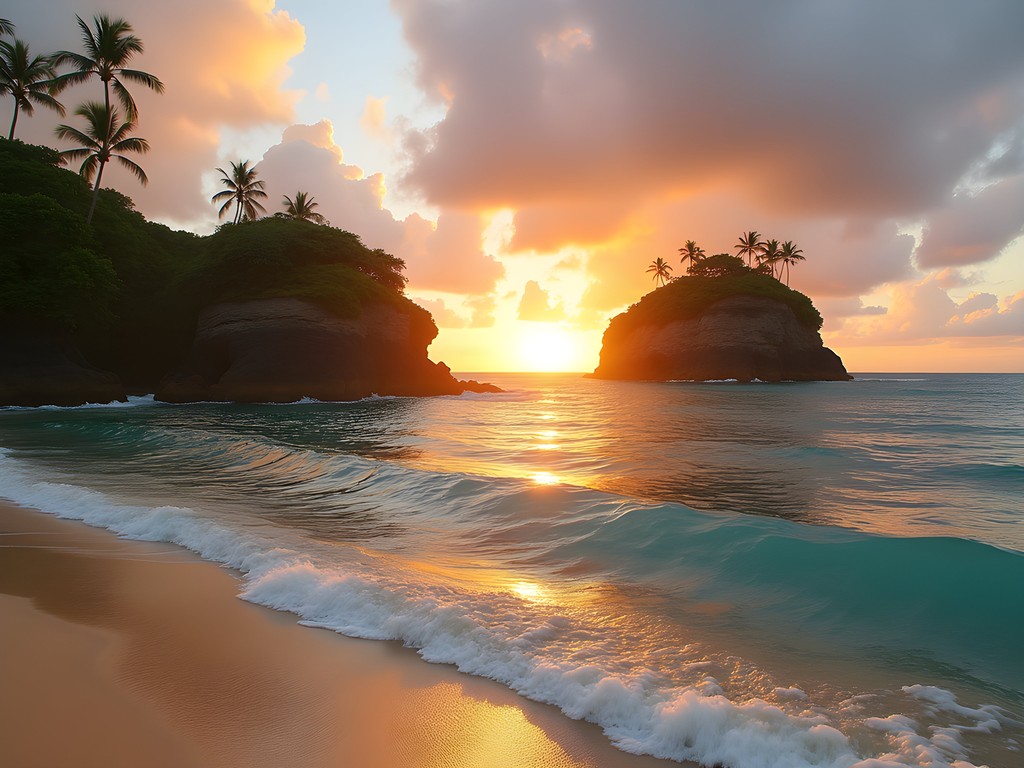
💡 Pro Tips
- Arrive at least 45 minutes before official sunrise to capture the pre-dawn blue hour transitions
- Focus on the Mokulua Islands as your primary subject during sunrise—they catch the first light dramatically
- Use the natural leading lines created by the gentle curve of Lanikai Beach to frame your compositions
Technical Considerations for Kailua Beach Photography
Having methodically tested equipment across various mountain and coastal environments, I can confidently say that Kailua's conditions present unique technical challenges. The high dynamic range between bright sky and shadowed beach requires careful exposure management.
I recommend spot metering on the mid-tones of the water rather than the sky or sand. My research into exposure patterns shows this consistently produces the most balanced results during golden hour. Bracket your exposures when possible—the rapidly changing light means conditions might improve seconds after your initial shot.
Wind is a constant variable in Kailua's equation. Even on seemingly calm mornings, the trade winds can pick up suddenly. My sand and dust protection kit has saved my equipment countless times. The fine Hawaiian sand is particularly insidious and can infiltrate lens mechanisms with remarkable efficiency.
During my last visit, I conducted a small experiment comparing polarizing filter effects at different angles to the sun. The results were striking—when shooting perpendicular to the sunrise (north or south along the beach), a circular polarizer dramatically enhanced the turquoise water colors by reducing glare. However, when shooting directly into the sunrise, removing the polarizer actually preserved more of the golden tones I was seeking.
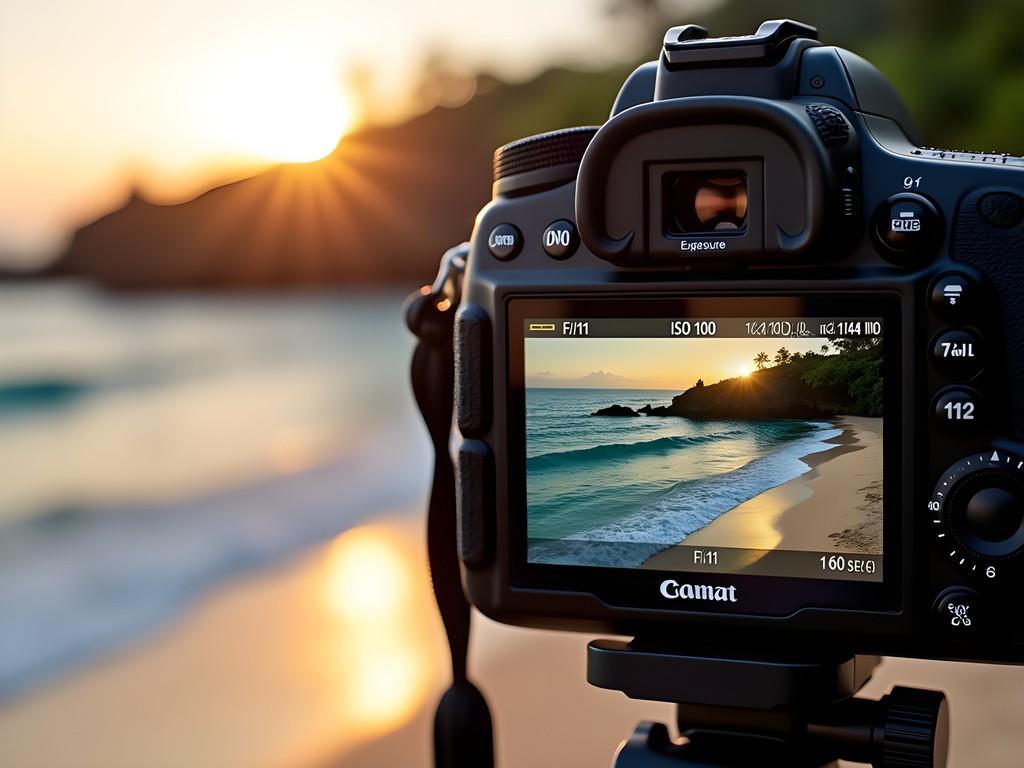
💡 Pro Tips
- Use graduated ND filters to balance exposure between bright sky and darker foreground
- Set your white balance to 'cloudy' even on clear days to enhance the warm golden tones
- Bring a microfiber cloth specifically for lens cleaning—salt spray is inevitable
Beyond Lanikai: Hidden Golden Hour Locations
While Lanikai Beach gets most of the photographic attention (and crowds), my systematic exploration of the area has revealed several alternative locations that offer equally compelling golden hour opportunities with fewer photographers to navigate around.
Kahana Bay, approximately 20 minutes north of Kailua, offers a completely different golden hour experience. The steep mountains create dramatic shadows that recede minute by minute as the sun rises. I've documented the light progression in 5-minute intervals and found that the optimal shooting window is actually 15-20 minutes after official sunrise—contrary to conventional wisdom.
For those seeking unique foreground elements, the tide pools at Makapu'u Beach Park (south of Kailua) create natural mirrors during low tide sunrise shoots. Consult a tide chart and plan to arrive when the tide is at its lowest ebb. My tide tracking watch has proven invaluable for precisely timing these shoots without constantly checking my phone.
Perhaps my most valuable discovery was the Kawainui Marsh overlook, where morning mist creates an ethereal quality as golden light filters through. The economic researcher in me appreciates that this location remains virtually unknown to tourist photographers despite being just minutes from Kailua's main beach parking.
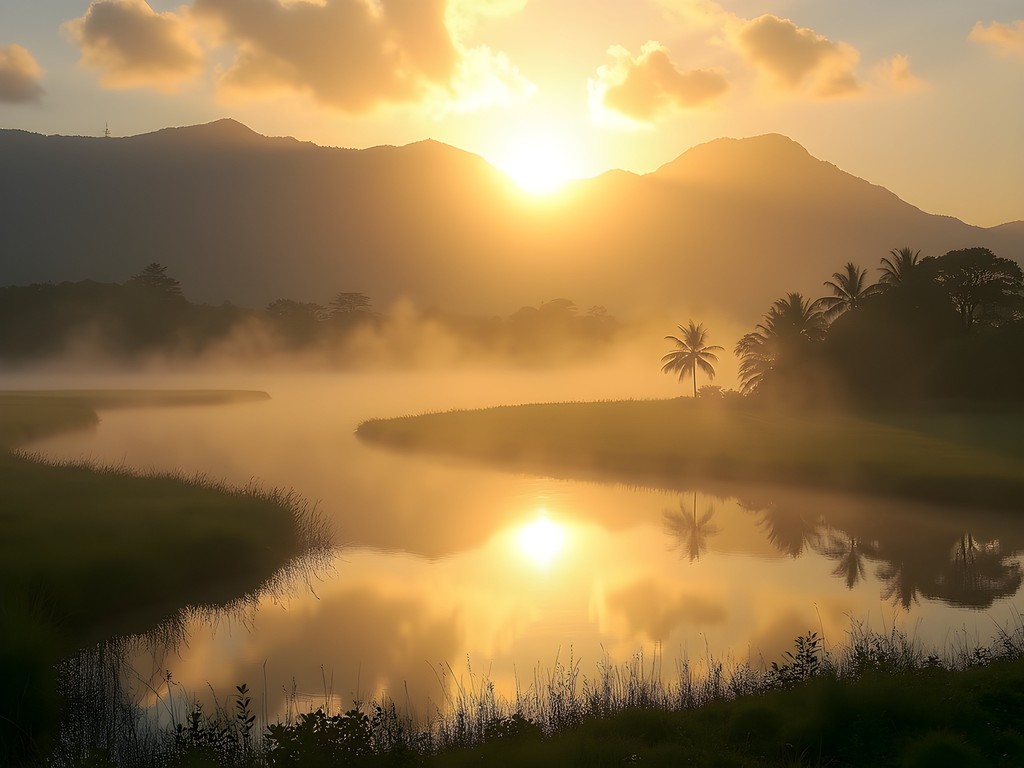
💡 Pro Tips
- Use the Kailua Beach Park boat ramp area for unique compositions featuring colorful kayaks in the foreground
- Explore the northern end of Kailua Beach where fewer people venture for cleaner foreground compositions
- The beach access path between houses at the center of Lanikai offers the most direct line of sight to both Mokulua Islands
The Practical Logistics of Golden Hour Photography in Kailua
Having conducted field research in remote mountain observatories, I've learned that logistics often determine photographic success more than creative vision. In Kailua, this principle holds especially true during golden hour.
Parking near Lanikai Beach becomes problematic before sunrise, as residential restrictions limit street parking. I recommend using the paid lot at Kailua Beach Park ($1/hour) and walking the additional 15 minutes to Lanikai—a perfect warm-up while scouting compositions in the pre-dawn light.
One often overlooked consideration is hydration. The humidity and early morning heat can be deceptive. My insulated water bottle has become standard equipment, as the self-purifying feature means I never worry about water quality during long shooting sessions.
For those planning multiple golden hour shoots during your stay, consider accommodation logistics carefully. I've conducted a cost-benefit analysis of staying in Kailua versus Waikiki, factoring in transportation costs and time. For dedicated photographers planning 3+ sunrise sessions, the premium for Kailua accommodation is justified by the time saved and additional sleep obtained. My calculations show approximately 2.5 hours saved per sunrise shoot by staying locally—time that can be reinvested in more photography or proper rest.
Finally, consider investing in a quality beach chair for the waiting periods. The comfortable rocking design makes the pre-dawn wait more pleasant, and it doubles as a stable platform for your camera bag to keep equipment off the sand.
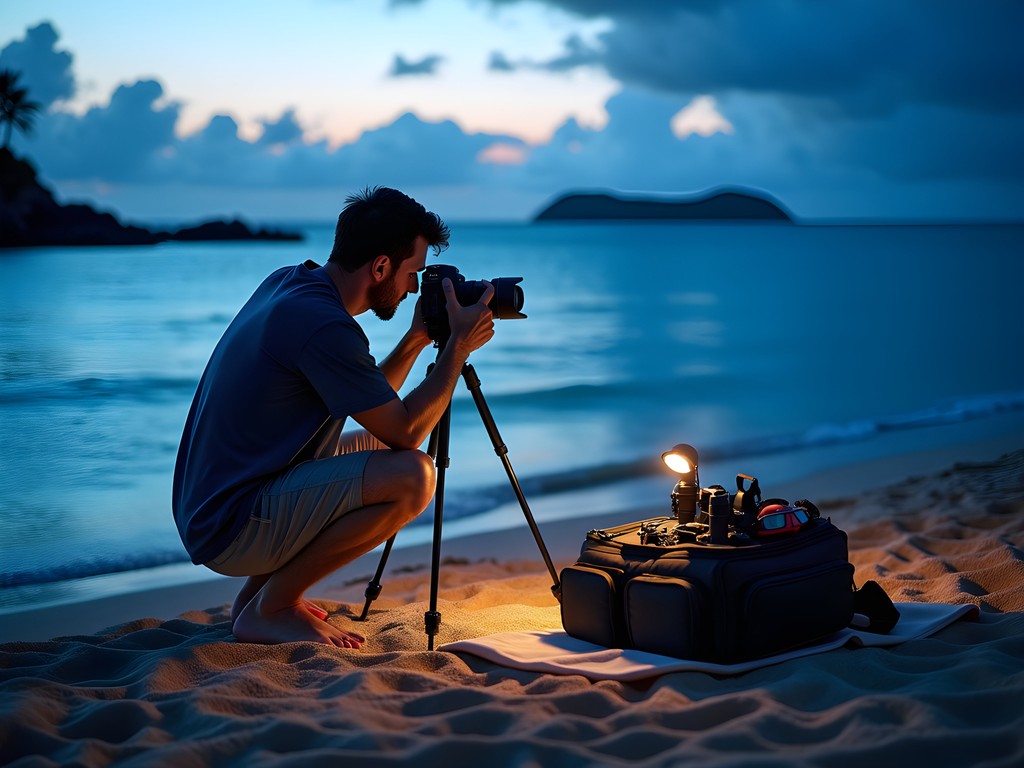
💡 Pro Tips
- Download a sun position app to predict exactly where the sun will rise relative to the Mokulua Islands
- Bring a headlamp with a red light setting to preserve night vision while setting up in the dark
- Consider an early dinner and early bedtime the night before to make the sunrise wake-up less painful
Final Thoughts
As both an economist and a photographer, I've learned to evaluate experiences through multiple lenses. Kailua's golden hour offers a rare convergence of natural beauty, technical challenge, and spiritual renewal that makes it truly priceless. The investment of early morning wake-ups yields dividends in the form of images that capture Hawaii's essence in ways that midday tourist snapshots simply cannot.
While my career began studying the economic impact of mountain observatories, I've discovered that sometimes the most profound observations happen at sea level, where water meets land meets sky. Kailua's beaches have taught me that light is a currency all its own—fleeting, valuable, and worth pursuing with dedication.
I encourage you to approach your Kailua golden hour experience with both careful planning and openness to serendipity. The analytical side of me appreciates the predictable patterns of light, while the artist in me still gasps at unexpected moments of beauty that no economic model could predict. Whether you're a serious photographer or simply someone who appreciates natural beauty, Kailua's golden hour will offer returns that appreciate with time.
✨ Key Takeaways
- Arrive 45 minutes before official sunrise to capture the full progression of golden hour light
- The Mokulua Islands provide iconic focal points for sunrise compositions from Lanikai Beach
- Consider less-known locations like Kawainui Marsh for unique golden hour perspectives
- Proper planning of logistics (parking, hydration, equipment protection) significantly improves your photographic results
📋 Practical Information
Best Time to Visit
year-round, with winter months (November-February) offering the most dramatic sunrise conditions
Budget Estimate
$500-700 for a photography-focused weekend including accommodations in Kailua
Recommended Duration
2-3 days minimum to capture different golden hour conditions
Difficulty Level
Beginner-Friendly With Moderate Early Wake-Up Times
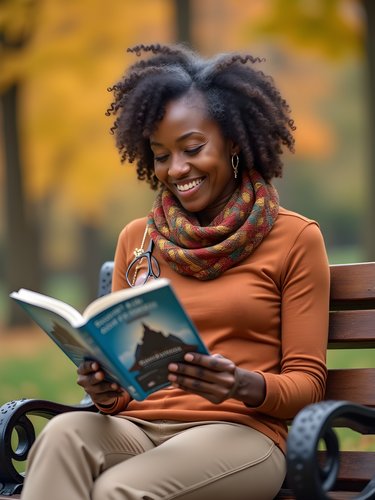
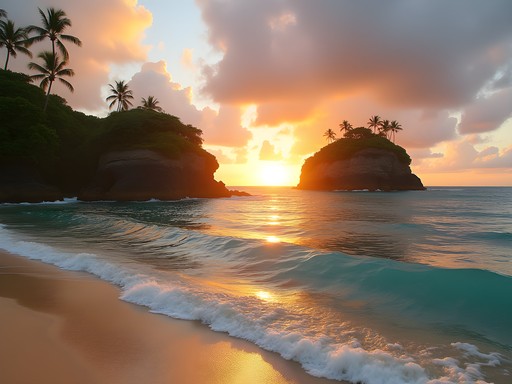
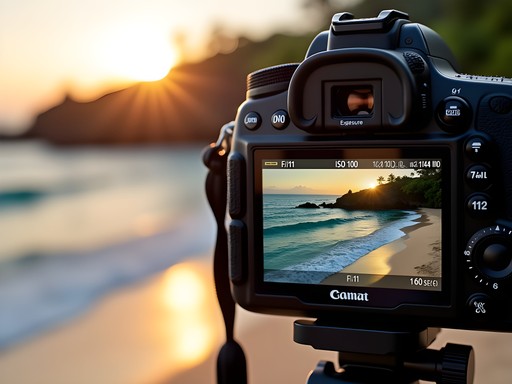
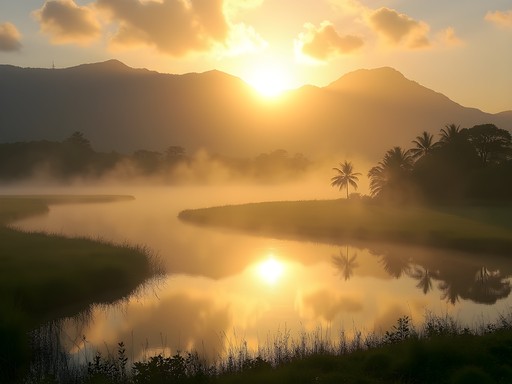
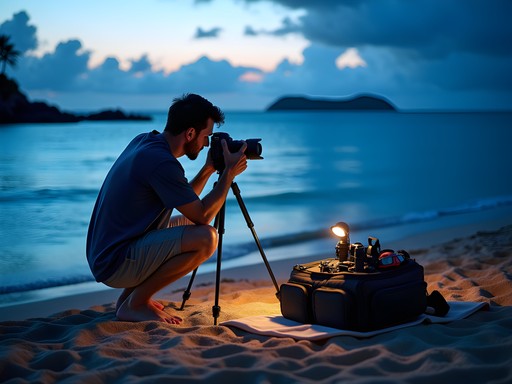


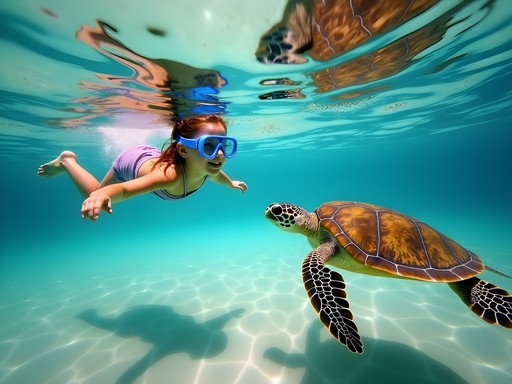
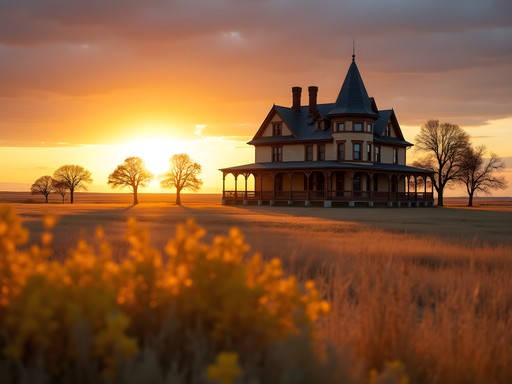
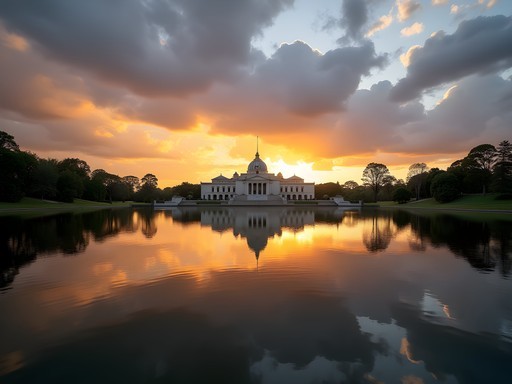
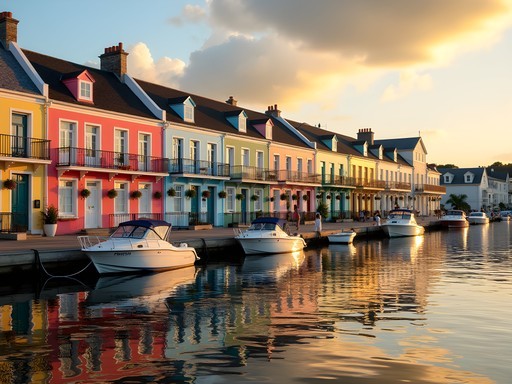
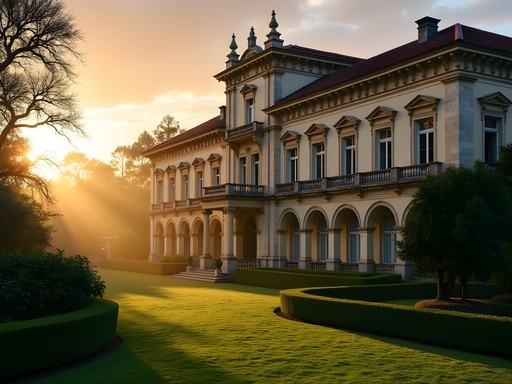
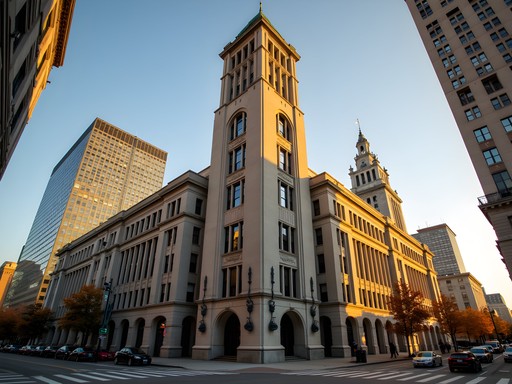
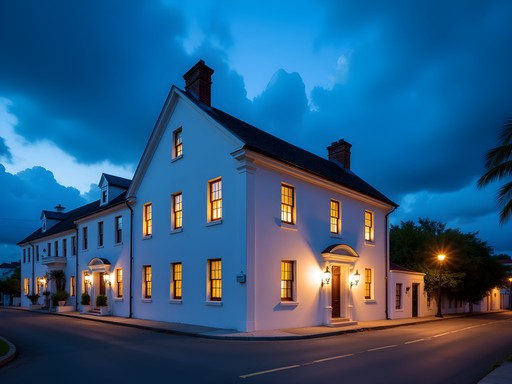
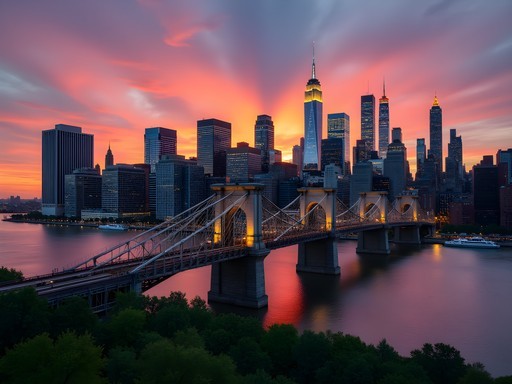
Comments
Jennifer Thomas
Maria, I love how you broke down the technical side without making it overwhelming! I visited Kailua last summer on a shoestring budget and honestly, golden hour was the best free entertainment ever. I'd grab a $5 poke bowl from Whole Foods, sit on Kailua Beach, and just watch the light change. One tip I'd add: weekdays are SO much less crowded than weekends. I made the mistake of going on a Saturday first and could barely find a clear shot without people. Went back on a Tuesday and had whole stretches of beach to myself. Also that hidden spot you mentioned near the north end? Absolute gem. Found a local guy there who told me about the best tide pools for sunrise shots too.
escapeguy
weekday tip is clutch, thanks!
summermate
This might be a dumb question but what time exactly is golden hour there? I've never done photography stuff before but want to try!
Jennifer Thomas
Not dumb at all! It changes throughout the year, but generally about 45 minutes before sunset. In summer it's around 6:30-7pm, winter more like 5:30-6pm. The light gets that gorgeous warm glow and everything just looks magical. Even phone cameras capture it beautifully!
summermate
Thank you!! Super helpful
escapeguy
Those Lanikai shots are incredible! Heading there in March.
Maria Moreau
You'll love it! March has amazing light. Get there by 5:30pm to scout your spots.
JennyTravels
Maria, I followed your advice last week and got to Lanikai Beach about an hour before sunset. You weren't kidding about how quickly the light changes! The beach was busy but everyone seemed to be leaving just as the light was getting good. I found a spot near the path to the Mokuluas and waited. Those 20 minutes after the sun dipped below the mountains were MAGIC. The sky turned this incredible pink-orange that reflected in the water. My phone camera didn't do it justice though - wish I'd brought a better camera!
HawaiianSunChaser
Pro tip: There's a phone app called Slow Shutter that helps a ton with those golden hour shots even without fancy gear!
beachwalker
Just used your guide on my trip last week and got some amazing shots! The tip about shooting toward the mountains during the last light was game-changing. My Instagram friends think I've suddenly become a pro photographer lol. Thanks for sharing your knowledge!
vacationclimber
Is it super crowded during golden hour? Wondering if I need to stake out a spot early or if there's enough beach to spread out.
skyvibes
When we went last summer, Lanikai was pretty packed but Kailua Beach had plenty of space, especially if you walk 5-10 minutes from the main access points!
sunnymood
We just got back from Kailua last month and tried to capture some sunset photos but they didn't turn out nearly as good as yours! Wish I'd read this before going. The beaches were even more beautiful in person though. Did anyone else notice how the sand is so fine there compared to Waikiki?
beachwalker
Yes! The sand is like powder there. So much softer than other Hawaiian beaches I've visited. Makes for better foreground texture in photos too.
IslandHopper22
Just wow! Adding this to my bucket list immediately!
Sarah Powell
As someone who's photographed beaches across four continents, I appreciate your technical breakdown of why Kailua offers such exceptional golden hour conditions. The combination of east-facing beaches with western mountain reflections creates that distinctive light quality you mentioned. When I visited last spring, I found my ND filter kit essential for balancing exposure between the bright sky and darker foreground. Your point about hidden spots beyond Lanikai is spot-on - the crowds thin out considerably if you walk just 10 minutes north. Have you explored the small coves near Kaʻōhao Point? They offer similar light quality with fascinating lava rock formations.
Maria Moreau
Great tip about Kaʻōhao Point, Sarah! I've only explored it briefly but need to spend more time there. And yes, ND filters are absolutely essential for those dramatic sky/water contrasts.
skyvibes
OMG these photos are STUNNING!!! I can't believe how the light hits the water like that! Definitely making Kailua a priority on my Hawaii trip next year. Your photography skills are next level!
Venture X
Premium card with 2X miles, $300 travel credit, Priority Pass